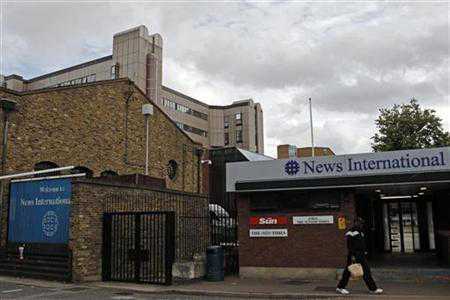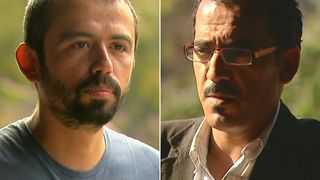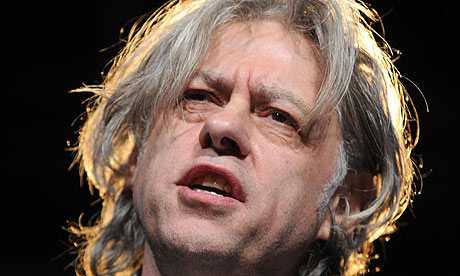The national interests are pursued not only by means of tanks and guns both in the US and the UK because the power of media is regarded as a crucial tool to be utilized in the defense policy of the country. Especially in cases of military operations to be conducted against any country, the public relations constitute the most important aspect of the issue. As many as the number of soldiers operating on the field, there exist those people acting to shape the public opinion worldwide just like the litheness of a machine. ‘The public opinion is tried to be captured’ with the help of diplomatic representatives, so called NGOs, charity organizations, environment clubs, child associations, archaeology institutes, corporations, newspapers and TV channels and many other official, semi-official and civil society organizations. Even though we do not approve, some photos are produced and given meaning, if necessary, as in the case of the Gulf War. Then, you watch on the TV screens the tragedies of those spurious victims swearing and testifying their countries in order to settle down theUSA. Whenever you happen to gather information about a country to be invaded, you realize that the required information is diffused excessively and freely by an invisible hand throughout the internet. The American info-production centers prepare such excessive and functional data that you may not even need any other sources to be informed. For instance, 80% of all the information floating in the net on the nuclear activities of Iran is consciously diffused by the US herself. If you want to reach the basic information about Iran, the most convenient source to be found is probably either Wikipedia or CIA World Factbook. Moreover, even some diplomats, whose countries are the enemies of America, reach some information about their country via CIA World Factbook.
Shortly, the defense (offense) is not realized by tanks and guns. Those targeting the results only through hard power are the ones possessing solely that power, and always end up with disappointment. What is played is the intelligence game in which the most important area of clash is the media, and generally public relations. Therefore, no state has the right to survive in this game if it is not well-advanced in terms of communication.
In that regard, the seemingly independent broadcasting organizations such as BBC, CNN and theWashington Post can easily transform into a spy or a soldier within quite a short time. We have experienced the most animate examples of this issue in the fight against PKK terrorism, and we are still continuing to experience. Almost all the Western media organizations reject to call PKK as a ‘terrorist organization’. In spite of the tons of protest letters sent to BBC, the so called independent British press organization, which has the full public support for its expenditures, states that they choose to use impartial language with regard to such issues. The BBC Editorial Guideline states that when reporting terrorism “other people’s language should not be adopted” and “the use of the term of terrorism should be avoided, other people should be let to characterize.”[1] Even if it seems quite nice on paper, the organization in question (PKK) is the one labeled as ‘terrorist’ and accepted as such in the laws by almost the whole world. The British Anti-Terror Law is not immune to this general rule. Therefore, there exists no situation according to which BBC would act with the fear of treating unjustly to anybody. Nevertheless, if BBC has not been able to comprehend whether PKK is a terrorist organization or not, there is something strange here. What is more, BBC has not demonstrated the same sensibility in the case of IRA, whose activities have been labeled as ‘terrorist’ by the same BBC. It has been BBC which quite easily censored the news related to IRA, and which could not stand hearing even the voices of the IRA leaders, but instead replaced them with the voices of machines. In other words, the principles of BBC Editorial Guideline do not apply when it comes to the members of IRA. For instance, in the news of 15 April 2001, entitled as “Real IRA Linked to Post Office Blast”, it was stated that the blast “is thought to have been the work of dissident Irish republican terror group the Real IRA”.[2] In another case of 26 January 2006 news, the activities of IRA were presented as “the IRA terror campaign”. In line with such examples, according to BBC, there is no doubt about Al-Qaeda’s being a terrorist organization. Almost in each and every news, the expression of “terrorist leader Osama Bin Laden” is utilized for the leader of Al-Qaeda.[3] BBC, with regard to ETA, utilizes the same approach and easily calls it as a ‘terrorist organization’.[4] The examples are so of a mass amount that it is impossible to cite each and every of them.
In short, BBC does not take it hard to label those terrorist organizations, other than PKK, as ‘terrorist organization’. With regard to those organizations, the principles of Editorial Guideline do not cause any problems. However, when it comes to a terrorist organization pouring the bloods of Turks and Kurds, BBC feels the necessity of being impartial. It seems the blood of 5.247 civilians murdered by PKK is not so enough that BBC mentions about its being not ready to call PKK as a terrorist organization. PKK is such a terrorist organization that it can bomb in front of an education institution in the middle of a crowded city in which many Kurds live. And, BBC happens to find regarding PKK as a terrorist organization as incompatible with its principles…
In this case, is BBC the only one acting on double standards?
Of course, not!
Those so called respectable newspapers and channels do not use the expression of ‘terrorist organization’ for PKK while it is utilized for Al-Qaeda unhesitatingly.
***
Keep aside the utilized language, in the last operation (Operation Sun), some broadcasting organizations, primarily BBC and the Washington Post, went well beyond this language and produced news that can be rightly regarded as being clear psychological support to PKK. While the Operation was underway, the Iraq-originated news of BBC seemed just like a PKK campaign conducted in an explicit, planned and programmed manner. To exemplify, if the news written byCrispin Thorold under the title of “Sympathy for Rebels in Northern Iraq”[5] were penned by the PKK, there would be not much of a difference. Firstly, when you look at the photos published in the newspaper, you can think of the Iraqi town of Ranya as a town in the US. In the photo, the SUVs of the newest models, a wide motorway and a peaceful town were quite successfully portrayed. The mountain covered with snow was so successfully displayed in the photo that the ordinary town of the north part of Iraq resembled a skiing center in Canada. Considering all these, one tends to think that the image to be created should be the image of civilized members of PKK living peacefully among the civilized people. Moreover, no Ranyanian is troubled with the PKK. On the contrary, according to Mr. Thorold, PKK is quite popular and welcomed in Ranya. “In Ranya, local people have got used to their neighbors in the PKK”, says the ‘journalist’ of BBC.One man with whom Mr. Thorold talked states: “I like the PKK. They are very good people. They look after people here. The PKK are fighters but they are not dangerous people like other people, like Islamic people. Like Osama bin Laden.” The British journalist told with one man in enormous Northern Iraq without mentioning his name, and, this one man praised PKK in an unbelievable manner. What is strange here is that this ‘one man’ used the expression of ‘dangerous’ for the Islamic people. Then, is this ‘one man’ non-Muslim?
Another person with whom the British journalist told is again unnamed one middle-aged man. This middle-aged man states: “The Turkish government wants to attack all the Kurdish people and not just the PKK. Turkey just wants to make things complicated here in the Kurdish region of Iraq.” The British journalist does not give the name of this middle-aged man, but does not hesitate to add: “That view is shared by many local politicians…” The third man with whom BBC told in this region again does not have any name. The person is presented as an elderly man in the news. This elderly man says: “The PKK are human beings like us. They just want to stay in their country. The Turkish government is like Saddam Hussein’s regime. In the south ofTurkey they cannot even study their own language. The situation is getting worse. We just want it to improve and for there to be peace.”
How is it possible to mention about the good will and independent journalism of BBC after seeing such expressions? If we, by stating to have told with three unnamed people, publish those writings praising Al-Qaeda and make a comparison between the British government Saddam Husain, how would be the reaction of London to such condemnation? By the way, let’s to remind, the article ofThorold was just only one example that can be regarded as BBC’s explicit support to PKK.
***
The Washington Post
The Washington Post was among the newspapers ‘supporting’ PKK during and after the Operation. The news entitled as A Kurdish Society of Soldiers[6], written by Joshua Partlow and photographed by Andrea Bruce, constitutes on its own such an excellent example that it can serve as the basis of the book to be prepared for the course on the issue of how to support terrorism with media. Partlow portrayed PKK as ‘a Kurdish movement and army seeking for justice’. What is more, he presented PKK as a civilized movement far from the violent culture of the Middle East, and went even to a point to state: “They relate their struggle to those of the American revolutionaries who fought the British crown.” The Andrea Bruce’s camera tried to create an image of poor but proud people who are romantic, civilized and in a struggle for right. The journalists claim to follow the operation with PKK terrorists for 5 days. I say ‘they claim to’ because there is no sign of clashes in their photos. In the writings of Partlow and the photos of Bruce, instead of a harshly devastated Zap region, there exist the terrorists of PKK who stand to challenge Turkey and behave so calm and romantic to feed a little bear with baby bottle. Additionally, Partlow noted that the ‘guerrillas’ of PKK received no salaries. It is obvious that Partlow regards PKK members not as terrorists, but as laborers who should get salaries in return for their jobs.
Especially Andrea Bruce’s photo showing a member of PKK feeding a little bear with a baby bottle should be analyzed more closely. Of course, Bruce did not put the expression of ‘terrorist’ under this photo, too. This person called as ‘A PKK rebel’ smiles while feeding the baby animal with the compassion of a mother. He has a Kalashnikov put on the rocks, but Bruce stated that PKK is a self-sufficient society, and bears no resemblance to the rest of Iraq. Within such a portrayal, the one looking at the photo either feels sorry for PKK or admires it.
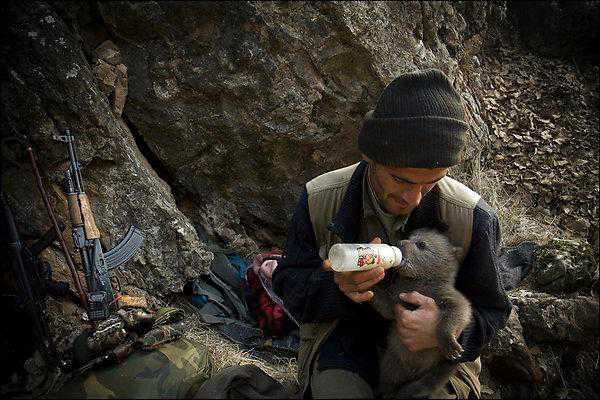
In another photo, Bhoz Erdal is displayed. The note made by WP is as such:
“The Turkish army could not capture any of our territory, could not get one of our bases, our weapons or even a scrap of nylon.”
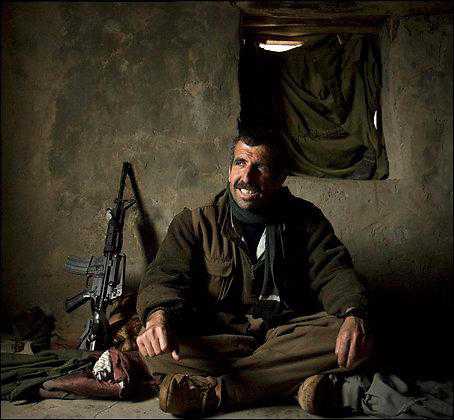
WP states that these words belong to “the PKK commander”. Again, he mentions neither the expression of terrorism nor the sign of “terrorists”. As if there existed a legitimate army in before us (!)
Conclusion
The US sometimes acts as such. When the balances are thought to have broken down, she puts some amount of weight in one side of the teeter-totter. Such amount is placed sometimes in the Turkish sides, sometimes in the side of the terrorist. It has been proven as such in the Operation Sun as well. When Turkey showed the signs of going out of control, the number of anti-Turkey news began to increase in the Western media. The attempts to present PKK as a pleasant-romantic people’s movement increased substantially. While the Turkish general staff was distributing the press, someone was ensuring the balance with the photos of dead women, of ‘pleasant terrorists’ feeding baby bear. While BBC was diffusing the news that PKK got the support of all the Kurds,Turkey was trying to ‘enlighten’ an enormous operation by means of short statements. While even PKK was working with some associated journalists, Turkey fought against PKK on the one hand, and the misunderstandings on the other.
***
We have not been able to comprehend, yet.
We still regard the fight against terrorism as the fight against terrorist.
We have stuck to the point of the number of the dead terrorists.
We are still unable to realize that the most important part of the fight against terrorism is conducted in the minds. Therefore, we are still running after the terrorists in the areas defined by the fairness of the others; and cannot jump into the stage of fight against terrorism.
For those wondering the attitudes of BBC and The Washington Post in the next operation, let me say that they will continue not to call PKK as ‘terrorist organization’. However, the question of which side to be ‘supported’ will be determined by the conditions. Nevertheless, irrespective of whichever side is supported, they will continue to rely on the Book of Editorial Guidelines.
[1] ‘Editorial Policy BBC Guidance Note’ Available athttp://www.bbc.co.uk/guidelines/editorialguidelines/assets/advice/reporting_terrorism.pdf
[2] ‘Real IRA Linked to Office Blast’, BBC News, April 15, 2001. Available at: http://news.bbc.co.uk/2/hi/uk_news/1278355.stm
[3] ‘Bin Laden Suspects Fight Extradition’, BBC News, October 22, 2001. Available at: http://news.bbc.co.uk/2/hi/uk_news/1613919.stm
[4] ‘Journalists in the Frontline’, BBC News, October 1, 2001. Available at:http://news.bbc.co.uk/2/hi/uk_newas/1567324.stm
[5] ‘Sympathy for Rebels in Northern Iraq’, BBC News, October 26, 2007. Available at: http://news.bbc.co.uk/2/hi/middle_east/7063402.stm
[6] ‘A Kurdish Society of Soldiers’, The Washington Post, March 8, 2008. Available at: https://www.washingtonpost.com/wp-dyn/content/story/2008/03/07/ST2008030703635.html
Turkish Weekly
 Jimmy Savile would regularly take teenage girls to a hospital block alone, a former porter has claimed.
Jimmy Savile would regularly take teenage girls to a hospital block alone, a former porter has claimed.

